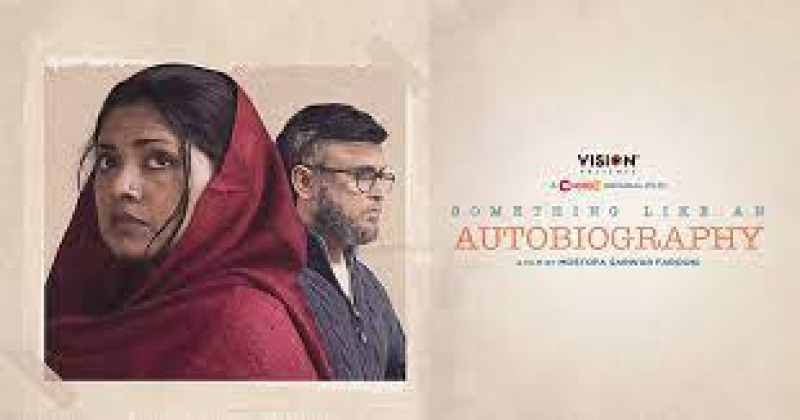- Body of Osman Hadi Returns to Dhaka From Singapore Late |
- Fakhrul condemns attacks on media, calls for unity, justice |
- 2 cops among 4 hurt in clash outside Indian Assit H.C. in Ctg |
- Inqilab Moncho urges people to avoid violence |
- Hadi’s death: Prothom Alo, Daily Star offices set afire |
Farooki weaves compelling narrative autobiography

The film successfully navigates the pitfalls of discrimination, even in the lives of celebrities.
Producer Mostofa Sarwar Farooki has once again demonstrated his exceptional storytelling skills by bringing societal events to the screen in an extraordinary manner. With a track record of highlighting various inconsistencies in societal norms, Farooki's recent web film, "Something Like an Autobiography," released on the OTT platform "Charki," delves into prevailing negative mentalities and discrimination in society.
What sets this production apart is Farooki's on-screen presence for the first time, marking a departure from his previous works.
He skillfully shares the screen with talented actors like Tisha, his life partner on and off screen. Speculations in the media hinted at the film being the real-life story of the Farooki-Tisha couple, and although not explicitly confirmed, it is evident that elements of their lives are interwoven into the narrative.
"Something Like an Autobiography" is a commendable creation by Farooki, portraying familiar life events that resonate with viewers, particularly addressing issues of extreme discrimination. One such instance is the societal pressure on couples regarding childbearing, where intrusive questions about the child's skin color become a disconcerting norm.
The film successfully navigates the pitfalls of discrimination, even in the lives of celebrities.
The narrative also unveils lives crushed by societal and state-imposed systems, where the price for expressing oneself freely on social platforms like Facebook is excessively high.
A poignant chapter involving the couple Farhan (Farooki) and Tithi (Tisha) sheds light on often overlooked aspects of life, such as the detrimental effects of noise pollution on women of childbearing potential.
The film underscores the sacrifices parents make for their children, prompting viewers to reflect on the profound impact of parental devotion. Thought-provoking dialogues throughout the story stimulate the audience's contemplation.
In the opening scene, Tithi is seen paragliding in Pattaya while Farhan is talking to her on video call from Dhaka. At one point in the conversation, Tithi expresses her feelings: “In life, not money, not fame; all she asked for were two wings.”
This seemingly simple dialogue subtly advocates breaking out of societal norms that restrict the aspirations of girls. The subsequent scene, where Tithi is robbed, leads the couple to decide to have a child, intertwining the joy of childbirth with triumph over physical obstacles.
The film skillfully portrays Farhan's struggle against noise pollution, showcasing his sacrifice for the well-being of his pregnant wife and unborn child.
Farhan's surrender to injustice prompts a heartfelt question about remembering the sacrifices of one's parents, resonating deeply with viewers.
"Do we remember what our parents did for us?"
And this question has hit every viewer's mind. It made everyone think: Do we really remember the sacrifices of our parents?
"Something Like an Autobiography" may not bring entirely new elements to its storyline, but even the most stringent critic cannot deny that it stands out as a masterpiece in Farooki's career, particularly in terms of aesthetic presentation.
The film's excellence is evident in the acting of its characters, cinematography, and background music.
Nusrat Imrose Tisha's acting skills leave no room for doubt, and her portrayal of Tithi raises the question of who could have embodied the role better. Farooki, in his debut on-screen role, seamlessly becomes Farhan, delivering a performance that feels authentic and compelling.
Notably, Monowar Hossain Dipjol’s special appearance adds a distinct flair to the film, deviating from his traditional style. The ensemble cast, including Dolly Zahoor, Iresh Zaker, Sharaf Ahmed Jibon, and Rifat Mazumder, showcases commendable skill in their respective roles.
Photographer Tahsin Rahman's unique perspective adds depth to the visuals, while Pavel Arin's ambient music at the end contributes to the film's overall immersive experience.

